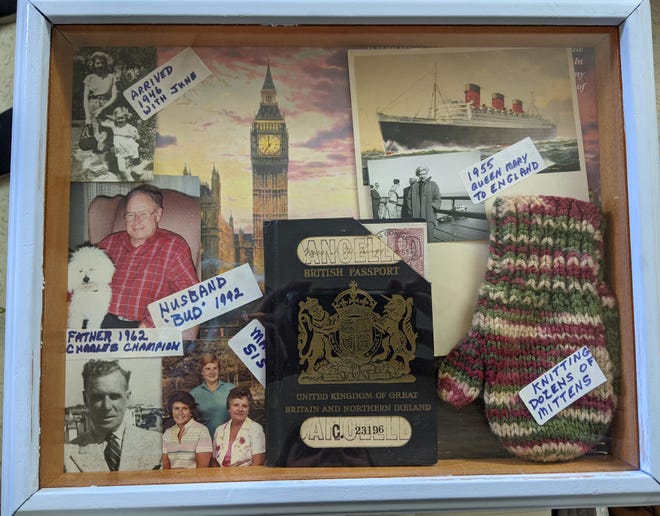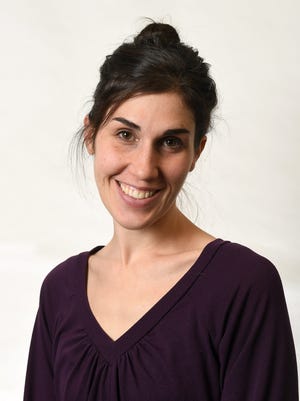
Abbey’s Road: The privilege of storytelling

Her skin was delicate and papery, lined with traces of a century’s worth of worries and laughs. Special care had been taken with her white hair that day, and she donned her pearls for our meeting. She looked beautiful. Not beautiful like the young woman in the black-and-white photo outside her door, the one where she’s grasping a toddler’s hand, her hair perfectly coiffed.
Beautiful in a deeper way, like a cherished piece of ornate wood furniture that you look at and say, “They don’t make them like that anymore.”
When I spoke with this woman, her granddaughter, a Gen X’er, served as an amplifier and translator, helping to fill the gaps in stories that are slowly being lost to time and dementia. Meanwhile the woman’s 80-year-old daughter sat nearby, helping to share the story of her mother’s 100 years.
What an honor it was for me to be sitting in that tiny room! Not because my centenarian interviewee was anyone special or important by our fast-paced society’s glamorous standards, but because she had 100 years’ worth of stories to tell and I got to hear a few of them firsthand, in soft, deliberate words and sometimes-repeated sentences.
These are the stories that I, in turn, get to share with you.
I signed up for journalism school because I have always liked to write. The interviewing part I could’ve done without — at least I thought so, in the beginning. Why would I want to interact with strangers, I reasoned, when I can tell a fine story on my own?
But 15 years into the business and I’ve learned that these interactions with strangers are not just vital, they are a gift.
A few weeks ago some colleagues and I attended an awards banquet for newspeople across Ohio. We took home some plaques and even posted a brief story about the awards, which gleaned mostly “laughing” emojis from the 15 people who saw it. Hey, that’s OK. We don’t do this for the awards. Or the money.
Local journalism isn’t glamorous like national media or celebrity gossip or even larger metro news. Those of us who have been doing it long enough don’t have ambitions of having a front-page spread in the New York Times; we just love our communities. The good and the ugly. We are passionate about our jobs because we consider it our duty and privilege not just to be watchdogs and “news breakers” but to document, for history’s sake, the lives of people celebrating not-so-small feats like turning 100 years old.

When my centenarian interviewee’s daughter emailed me last week asking me if I’d be interested in telling her mother’s story — she still remembers living along the coast of England and hearing air raid sirens during World War II — I at first paused because I know there are others whose stories I won’t have the time or opportunity to tell.
But this week, for Isabel “Betty” Beggs, I had both.
I say all of this to remind you that even though your print newspaper is not as thick as it was in 2007 when I graduated from journalism school or in 1990 before the World Wide Web, I and my colleagues remain present in your community to share the stories of your children and friends and neighbors.
My story ideas come from local selling walls and neighborhood watch pages and standing in line at the grocery store or going to the park.
When I get emails from people like June Nethers, who alerted me to her mother’s upcoming 100th birthday, it makes me happy to know that people still understand the importance of a community sharing its own stories.
I learned some things from my time with Betty, June and Sarah that day in an unremarkable assisted care facility full of remarkable people: That there’s probably a correlation between longevity and not smoking; that you can be 99 and still have a great sense of humor; and that every single person has a story to tell.
Some are just longer than others.
If you are reading this, thank you for supporting storytelling in your community. It is a privilege that I never take for granted.
Abbey Roy is a mom of three girls who make every day an adventure. She writes to maintain her sanity. You can probably reach her at amroy@nncogannett.com, but responses are structured around bedtimes and weekends.
